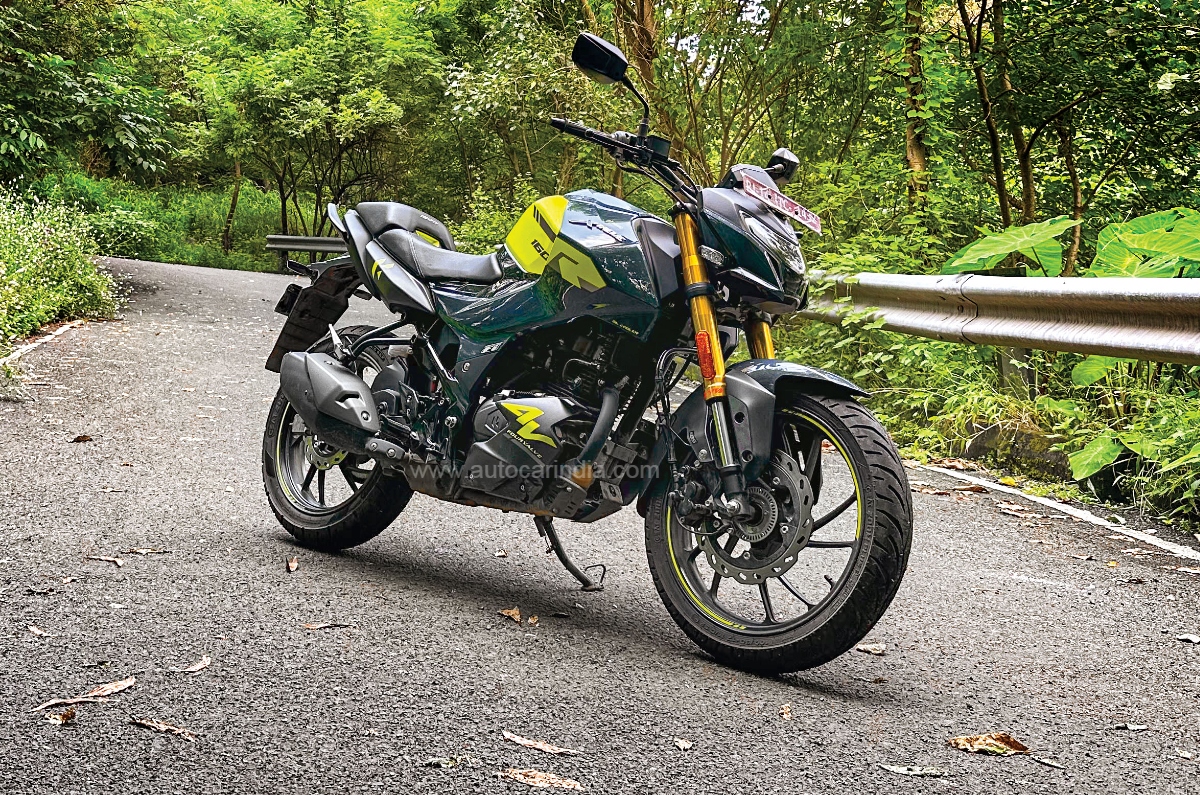
The Xtreme 160R 4V Pro promises to address the two shortcomings of the earlier 2V model by adding a little more performance and some more feel-good factor. It has just joined our long-term garage and after a week of living with it, here are the initial thoughts.
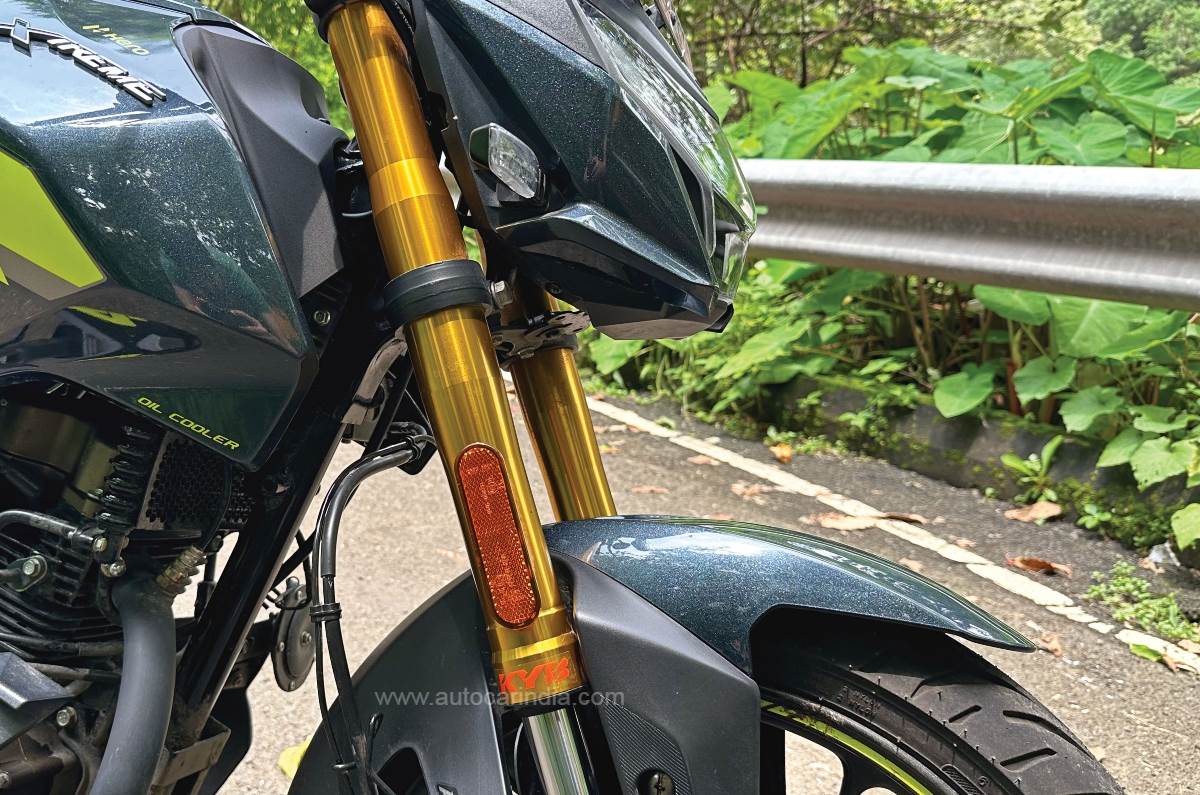
The mid-range is most certainly better than on the old bike. There’s a stronger surge through the rev range, which makes the bike a lot nicer in heavier, slower-moving traffic. The gearing is quite short as well, which makes for a better drive within the city. In fact, I often find myself coming to a standstill in third or fourth gears and then having to hurriedly downshift when it’s time to set off again.
Having recently moved houses, my commute is quite different. It’s now just over 30km and has a mix of sections with dense, slow-moving traffic, as well as long stretches of wide and fast roads that eventually leave the city.
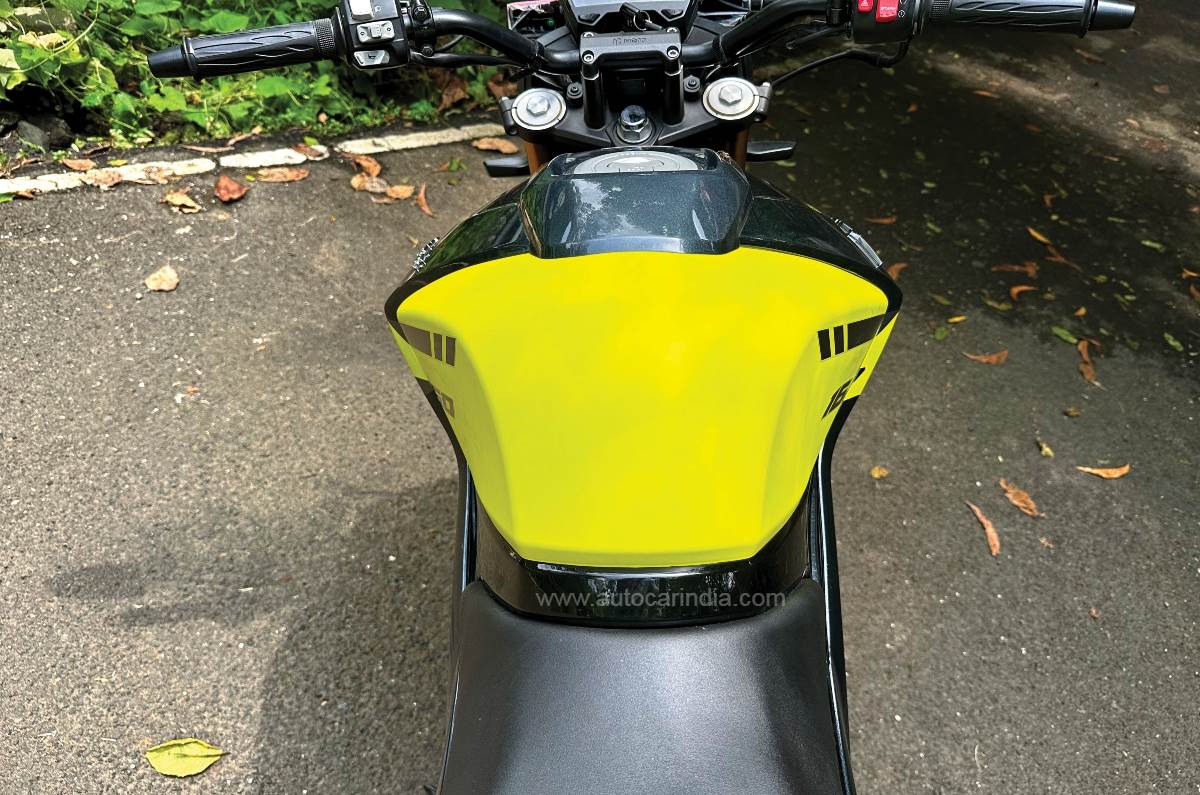
In traffic sessions, the Xtreme is good fun, but when the highway roads arrive, it doesn’t feel that much quicker than what I recall of the old bike. It can just about hold 100kph, but it is straining quite high at that point and doesn’t leave you wanting to search for what lies in reserve above that. I suspect top speed will be around the 120kph mark.
To be fair, this sort of performance is to be expected from the air-/oil-cooled, 160cc class of bikes. Nevertheless, I’m intrigued to get the bike fully tested and see how the numbers compare against the Pulsar N160 and Apache RTR 160 4V, which are our current segment picks. It’s something we’ll get to as soon as the rush of the anniversary issue is over.
Where the Xtreme does very well is in terms of comfort. The riding position is mildly committed, but spacious enough for me to be comfortable on my one-hour, one-way journey. The suspension also does a nice job of soaking in the bumps and the bike handles quite nicely as well.
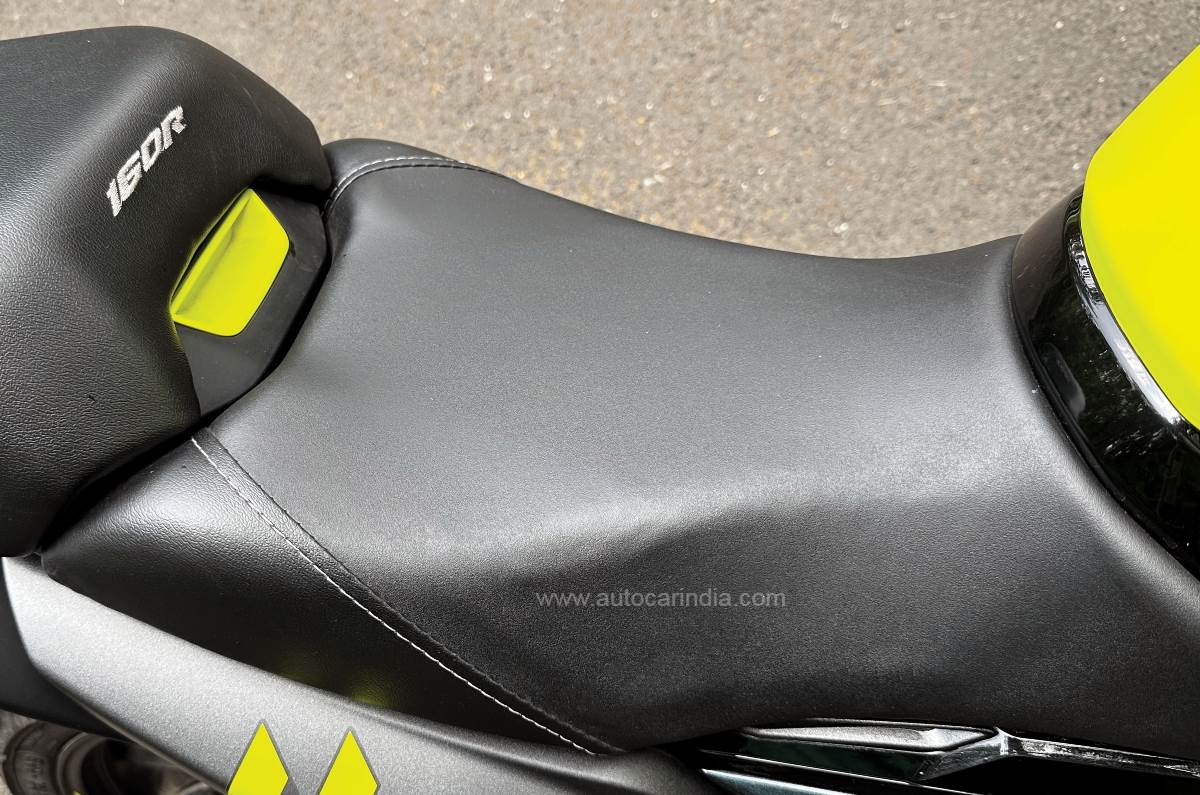
Comfort-wise, the only issue is that the seat starts to get painful after half an hour. The thick seat feels nice and cushy for the first few minutes, but after a while, it comes across as too soft. Come to think of it, seat comfort has been a weak point on most of the new Heros we ride these days, and while the company is making improvements here, there’s still some way to go.
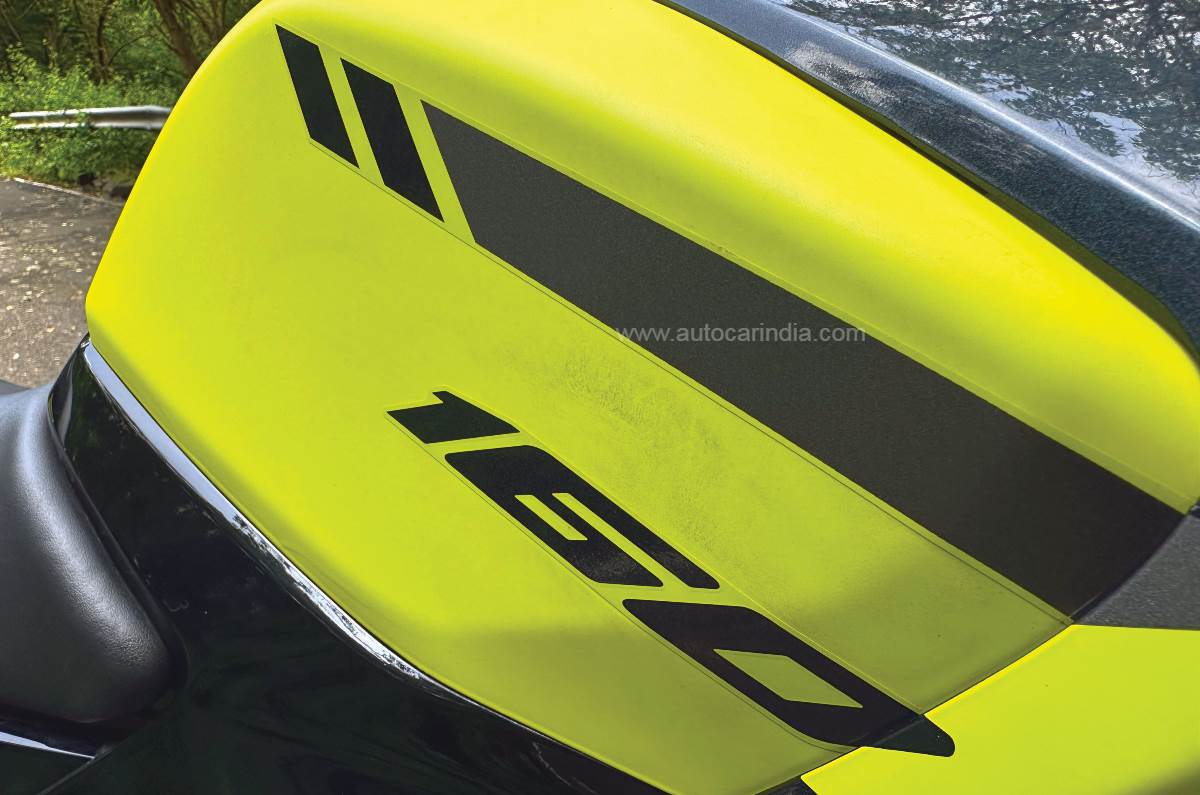
I do like the way the bike looks and that wider fuel tank as well as the new USD fork gives it a greater sense of presence than any of its rivals. To my eyes, this looks larger than the typical 160cc machine and that’s a good thing. I also like the funky paint scheme, but matte paint is a pain to live with and the neon yellow fuel tank already has some stains.
In our next report, we’ll share more details on what fuel efficiency is like because I haven’t been able to drain the first tankful in the time I’ve spent with the bike so far.
Also See:
Bajaj Pulsar N250 long term review, 730km report



